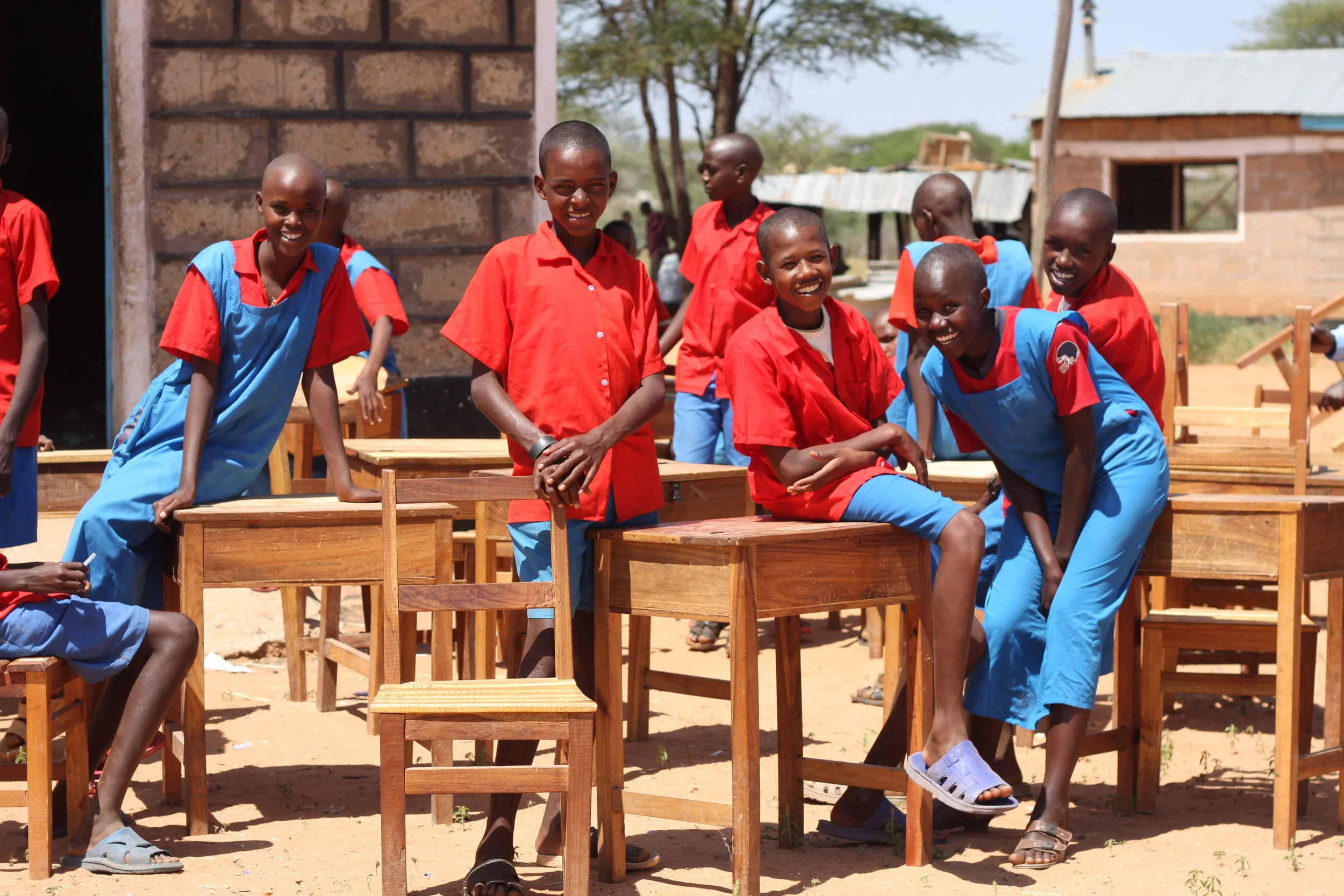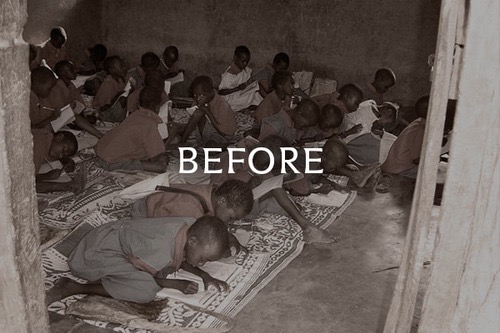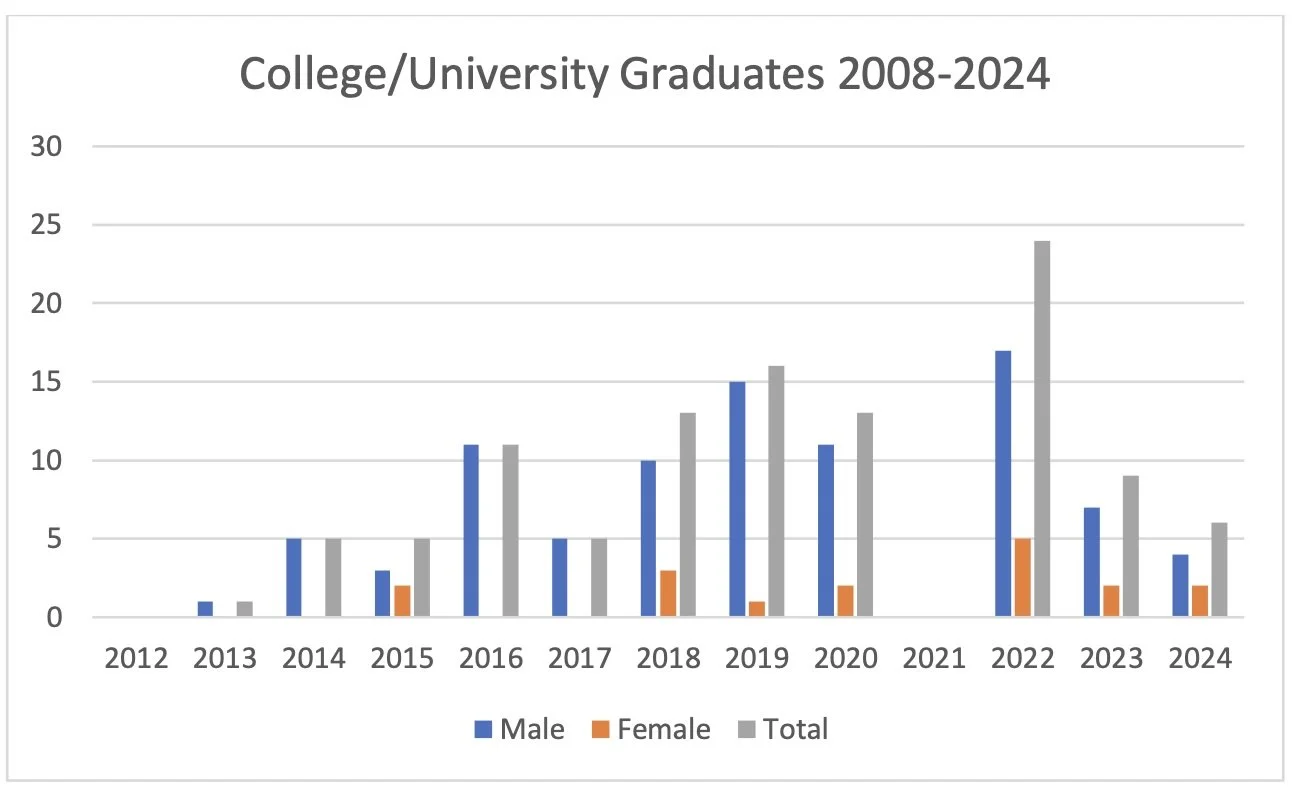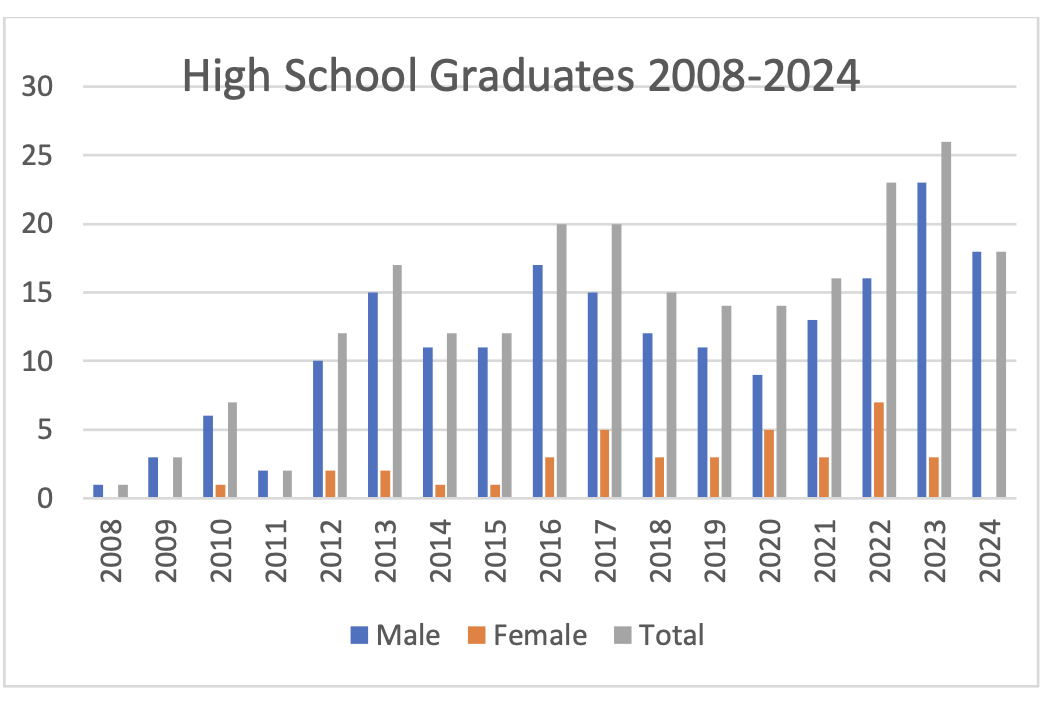









our work
our work
We help to educate Samburu children starting with preschool, to further education and employment.
In 2001, there were only 130 children at school.
Today, thanks to The Thorn Tree Project and the Samburu people's hard work, over 1,500 children attend school.
PRESCHOOLS
0
ELEMENTARY SCHOOL (1-8)
130 students
0 dormitories with showers and beds
0 libraries
200 point average for national test scores
HIGH SCHOOL GRADUATES
0 PER YEAR
COLLEGE GRADUATES
0 PER YEAR
PRESCHOOLS
11
ELEMENTARY AND JUNIOR HIGH SCHOOL (1-9)
Roughly 1,500 students
10 dormitories with showers and beds
3 libraries
300 point average for national test scores
HIGH SCHOOL GRADUATES
Roughly 10 PER YEAR
COLLEGE GRADUATES
Roughly 8 PER YEAR

Preschools
Preschools
To meet the challenges of the Samburu's nomadic lifestyle, we create nomadic preschools that are situated where the Samburu live and can migrate with them.
Most of these PRESCHOOL children are the first in their families to ever go to school.

Elementary AND JUNIOR HIGH SchoolS
Elementary AND JUNIOR HIGH SchoolS
We support three government-run elementary and junior high schools in Northeastern Samburu. By building 10 dormitories and offering free room and board to all students, children of nomadic families can attend school all year long. We provide the majority of the funding for these students.
We are pleased to say that our ELEMENTARY schools are becoming among the best in Kenya.
In 2017 Kenya introduced a new school system, so called Competency Based Curriculum (CBC) with the following structure: 2 years of preschool, 6 years of elementary school, 3 years of junior high and 3 years of senior high school. This in practice added an extra grade to each of our elementary schools, which now have to accommodate 9 grades.

Scholarship
Scholarship
Secondary school and higher education in Kenya is unaffordable for almost all Samburu families.
Thorn Tree Project offers scholarships to the top students to attend secondary school and university or trade school.

EMPLOYMENT AFTER EDUCATION
EMPLOYMENT AFTER EDUCATION
Our mentors work with the students right through to getting their first job.
The Thorn Tree program graduates were among the first persons in their families to ever go to school.

results
results
We believe in applying the best business practices to the management of our programs. We are focused on the end results of our goal and on accountability.
We work closely with local Samburu leaders to create clear objectives for all of our initiatives. We analyze problems together, generate solutions, create effective strategies, and identify measurements by which to monitor our progress.
In 2001 there were no preschools for the nomadic children.
Today, there are 11 nomadic preschools with 350 students
In 2001 there were only 130 children in grades 1 to 8.
Today, there are about 1,200 students in three elementary schools.
Since 2022 we have been actively supporting two newly built government high schools: Narasha Boys’ High School in Ndonyo Wasin and Sereolipi Mixed Day School in Sereolipi.
In 2005 not a single student graduated from high school, technical school or college.
Today, we have about 120 students in the Scholarship Program.
There were no college graduates in 2021 due to the disruptions caused by COVID19 pandemic.
In 2007 average mean grades across classes 1 to 8 were 200.
Three years later we increased mean grades to over 300 and it has held at this level.
In 2023 the highest KCPE (Kenya Certificate of Primary Education) scores in the three elementary schools that we support were 389 and 386, achieved by a male and a female student respectively!
EMPLOYMENT AFTER EDUCATION
In 2013 the first students who had started school at the Thorn Tree preschools in 2002 graduated from trade schools and colleges. These students were the first person in their families to ever go to school. They all have jobs and send part of their wages home. They have a great sense of duty and responsibility and they are very proud to be able to do this. Many are helping to put their younger siblings through school. By 2024 a total of 340 students have graduated from high schools, trade schools, colleges and universities. Among them are carpenters, plumbers, tour guides, cooks, conservancy rangers, nurses and teachers.
OUR GRADUATES INCLUDE:
Local motor bike taxi driver who is able to ferry old and sick community members
Local mason constructing houses
Restaurant and shop owner
Ndonyo Wasin grade school math teacher
Administrative Assistant at Ndonyo Wasin grade school
Chef at Sarara, a 5 star lodge
National Youth Service member
Security Manager at one of Nairobi's largest shopping malls
Local nurse at Ndonyo Wasin clinic
First female ranger at Samburu National Park with a degree in tourism
Associate of BOMA, a micro-finance organization helping women to start small businesses
A local high school English teacher
Mechanic at Kenya's largest grain farm
Ranger at the Rhino Sanctuary in Sera
IT manager in Nairobi
A local high school history teacher

ANNUAL REPORTS
Education Milestones
Education Milestones

GIRL POWER PROGRAM
GIRL POWER PROGRAM
The purpose of the Thorn Tree Project Girl Power Program is to empower our young Samburu girls through education. We work with the girls enrolled in our eleven local Preschools, three local Primary Schools, and the young ladies in our High School, College and University scholarship program. We aim to enhance their confidence and equip them with the leadership skills to succeed in Kenya and beyond. Ultimately, our girls’ success will enable them to increase their power to control their own lives and circumstances.
Why did we start a Girl Power Program in Samburu?
The initial work of the Thorn Tree Project began as a collaborative effort with the members of a local Samburu community to increase access to quality education. In the early stages of our work, as more children began attending school, we observed stark differences between the boys and girls especially in their willingness to actively engage in the learning process. While the boys were eager to participate the girls sat quietly, and rarely raised their hands to answer questions or read aloud.
We implemented small changes at first, encouraging and working with the girls to increase their participation. Over time there have been noticeable improvements seen in attendance, engagement and the academic performance of the girls. However, great disparity still exists in the measured success markers between male and female students by the end of primary school.
Samburu girls continue to face numerous barriers that negatively impact their performance in school, their likelihood of matriculating, and diminish their future chances for success. Many of these challenges are socio-cultural and require coordinated efforts by parents, teachers, community leaders, peers and sponsors. Other issues that limit girls participation in school include period poverty - the inability to access sanitary pads, underwear, bathing buckets and soaps. These issues can be resolved through the provision of basic resources. Starting the Thorn Tree Project Girl Power Program will aid our girls in addressing these challenges.
What have we accomplished with our Girl Power Program?
The Thorn Tree Project has been working closely with our Samburu girls throughout their academic journey encouraging and helping them learn to raise their hands and their voices. We have been empowering our girls with additional attention, study time and mentoring. We supply sanitary pads so the girls do not miss school when they have their menstrual cycle and provide them with access to information about personal and female health issues. We’ve invited women from all over the world to visit and motivate our girls. We adjusted our scholarship program to enhance the equal opportunity for the girls. The plan was well received and implemented with the community's approval.
What do we still hope to achieve with the Girl Power Program?
Our ambition is to take our Girl Power Program to the next level by creating structured programs, appropriate for different age groups and situations. We are building on our existing work while exploring and engaging additional partnership opportunities. This upcoming phase of our Girl Power Program will focus on three major outcomes:
● Girls remain in school, the dropout rate for girls decreases - all girls graduate
● Girls feel safe and protected
● Girls increase their self-confidence, participate actively and competitively in all school activities
Progress in these areas opens up opportunities for improvement in the girls’ academic performance and achievements. Helping to prepare them for their future success!
Interested to hear more about our Girl Power Program or get involved? Please contact Monicah Kimani monicahkimani@thorntreeproject.org










